Advisory Board
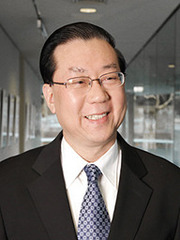
Prof. David Feng
PhD, FACS, FATSE, FHKIE, FIEEE, FIET
Founding Director, BMIT Research Group
Professor Emeritus, School of Computer Science, USyd
(David) Dagan Feng received his ME in Electrical Engineering & Computing Science (EECS) from Shanghai Jiao Tong University in 1982, MSc in Biocybernetics and Ph.D in Computer Science from the University of California, Los Angeles (UCLA) in 1985 and 1988 respectively, where he received the Crump Prize for Excellence in Medical Engineering. He joined the University of Sydney at the end of 1988, as Lecturer, progressing onto Professor in the Department of Computer Science and Head of School of Information Technologies. He has been the Honorary Research Consultant, Royal Prince Alfred Hospital in Sydney; Chair-Professor of Information Technology, Hong Kong Polytechnic University; Advisory Professor, Shanghai Jiao Tong University. He has been Head of School of Information Technologies, Associate Dean of Faculty of Science, Director (Research) of Institute of Biomedical Engineering & Technology, and Academic Director of USYD-SJTU (Shanghai Jiao Tong University) Joint Research Alliance, the University of Sydney; Advisory Professor, Chief Scientist and Chair of the International Advisory Committee, Med-X Research Institute, and Chair of the Advisory Committee, School of Biomedical Engineering, Shanghai Jiao Tong University. Professor Feng is a Fellow of ACS (Australia), HKIE (Hong Kong), IET (UK), IEEE (USA), and Australian Academy of Technological Sciences and Engineering (ATSE).

Prof. Michael Fulham
MB, BS, FRACP
Senior Staff Specialist in PET and Neurology, Royal Prince Alfred Hospital (RPA), Sydney Local Health District (SLHD)
Director of Department of Molecular Imaging, RPA, SLHD
Clinical Director for Medical Imaging, SLHD
Adjunct Professor, School of Computer Science, USyd
Michael Fulham is a clinician. He trained in Neurology at RPA. He then spent 5 years at the National Institutes of Health (NIH), Bethesda, Maryland, USA carrying out neuroimaging research with PET and MR. On his return to Australia he was asked to take charge of the RPA PET program which had major difficulties at the time. He has directed the PET (Molecular Imaging) program since then and pioneered the translation of PET and PET-CT from research tools into indispensable diagnostic tools for patient management. His application of PET to the staging of lung cancer with his surgical colleagues hanged the management lung cancer at RPA 'overnight'. His work as Chief Investigator of the 1st randomised controlled trial of a medical imaging technology (PET in lung cancer) in Australia and the contribution of close to 50% of the nation's PET scans for the PET Data collection was pivotal for Medicare reimbursement for PET scans. He has a large number of first-in-country milestones including the first Total Body PET-CT scanner and public hospital TGA-licenced cyclotron facility and led investments of over $45M in these technologies. His Department has performed the largest number of high-end scans in the country and is regarded as the most efficient and productive on the RPA campus. He participates and Chairs numerous essential Committees for SLHD in addition to his roles as an active clinician and researcher. He has published widely in neurology, imaging and computer science with over 450 publications and collaborative grant funding of >$41M.
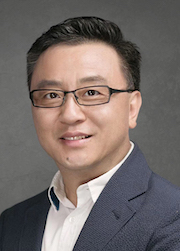
Prof. Ya-Qin Zhang
PhD, FATSE, FCAAI, FIEEE, AAA&S, CAE, NAI
Chair Professor of AI Science, Tsinghua University
Dean of Institute for AI Industry Research (AIR), Tsinghua University
Ya-Qin Zhang is Chair Professor of AI Science at Tsinghua University, and Dean of Institute for AI Industry Research of Tsinghua University (AIR). He was the President of Baidu Inc. from 2014 to 2019. Prior to Baidu, Dr. Zhang was a Microsoft executive for 16 years with different key positions, including Managing Director of Microsoft Research Asia, Chairman of Microsoft China, and Corporate Vice President and Chairman of Microsoft Asia R&D. Dr. Zhang was elected to the Chinese Academy of Engineering (CAE), the American Academy of Arts and Sciences (AAA&S), the Australian Academy of Engineering (ATSE), the National Academy of Inventors (NAI), and the Euro-Asia Academy of Sciences. He is a Fellow of IEEE and CAAI. He is one of the top scientists and technologists in digital video and AI, with over 500 papers, 60 granted US patents, and 11 books. His original research has become the basis for start-up ventures, new products, and international standards in digital video, cloud computing, and autonomous driving. He serves on the Board of Directors of four public companies. He is on the industry board of United Nation Development Program (UNDP), and AI global council of the Davos World Economic Forum. He is the Chairman of world’s largest open autonomous driving platform “Apollo” alliance with over 200 global partners. He has been an active speaker in global forums including APEC, Davos, United Nations, and Bo’Ao Asia Forum.
Director
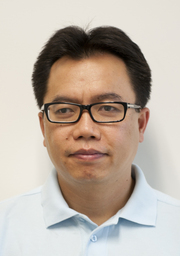
A/Prof. Weidong (Tom) Cai
Weidong (Tom) Cai is an Associate Professor, Director of the Biomedical & Multimedia Information Technology (BMIT) Research Group, and Director of the Multimedia Laboratory in the School of Computer Science, Faculty of Engineering at the University of Sydney. He was a Lead Investigator / Visiting Professor on medical image analysis and medical computer vision at Harvard Medical School in 2014, and a part-time researcher in IMAGEN (Interfaces, Machines, And Graphic Environments) Research Program, National ICT Australia (NICTA) during 2004-2006. He received his PhD degree in Computer Science from the Basser Department of Computer Science, the University of Sydney, in 2001. His research interests include computer vision, medical image computing, image/video processing, machine learning, pattern recognition, multimedia computing, bioimage informatics, and computational neuroscience. He has published over 300 peer-reviewed papers in leading international journals and proceedings of top international conferences. Dr. Cai is an Associate Editor of Computational Visual Media (Springer), Brain Informatics (a Springer interdisciplinary journal on computational neuroscience, artificial intelligence, big data analytics, and cognitive research), and guest editor of Machine Vision and Applications (Springer) and Neurocomputing (Elsevier). He is also the Springer-Nature Brain Informatics & Health Book Series Editor, and Co-Editor of Medical Computer Vision: Algorithms for Big Data (Springer).
Core Members
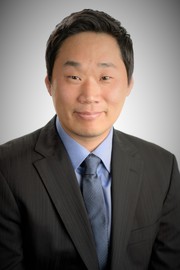
Prof. Jinman Kim
Jinman Kim is a Professor of Computer Science at the University of Sydney. He received his PhD from the University of Sydney in 2006 and was an Australian Research Council (ARC) Postdoctoral Research Fellow at the University of Sydney and then a Marie Curie Senior Research Fellow at the University of Geneva prior to joining the University of Sydney in 2013 as a faculty member. He is an ARC Mid-Career Industry Fellow, closely collaborating with his industry partner, Royal Prince Alfred Hospital, to conduct translational research. He co-leads the Faculty of Engineering’s Digital Health Imaging, which is a pillar of the Digital Science Initiatives (DSI), with the vision to combine the Faculty’s expertise in AI applied medical image analysis. He is also the Director of the Telehealth and Technology Center, Nepean hospital. Prof Kim’s research is on the application of machine learning to biomedical image analysis and visualization. He established and leads the Biomedical Data Analysis and Visualisation (BDAV) Lab at the School of Computer Science. He has produced a number of publications in this field and received multiple competitive grants and scientific recognitions. At the School of Computer Science, Prof Kim is an Associate Head of School, External Engagement responsible for industry engagement, a member of the School’s Executive Committee and, the Director of Master of Digital Health and Data Science degree.
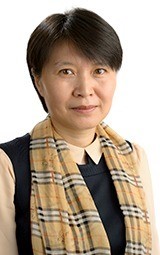
A/Prof. Xiuying Wang
Xiuying Wang is currently an Associate Professor and Associate Head for Higher Degree Research Education in School of Computer Science at the University of Sydney, and she has been the Associate Director of Multimedia Lab since 2009. She received her PhD degree in Computer Science from the University of Sydney in 2006. Her broad research interests include multi-modal image-centric computing and analytics, computer vision for medical/clinical applications, and artificial intelligence in biomedical research. Her research focuses on multimodal image processing, clustering and segmentation, biomedical image registration and fusion, saliency and anomaly detection and identification, and quantitative and radiomics analysis as relating to clinical applications. In conjunction with her students and research collaborators, Dr. Wang has been publishing in top-tier venues and received paper awards from flagship conferences in her fields. She serves several editorial boards including BMC Medical Imaging, Digital Medicine, Journal of China Oncology, and Precision Radiation Oncology, and a guest editor of Frontiers in Nuclear Medicine, and Precision Medicine.

Prof. Zhiyong Wang
Zhiyong Wang is a Professor and Director of the Multimedia Computing Laboratory at the School of Computer Science, The University of Sydney, Australia. He is also Deputy Director of Sydney Informatics Hub (SIH), a University’s Core Research Facility. He received his BEng. and MEng. Degrees in electronic engineering from South China University of Technology, Guangzhou, China, and his PhD degree from Hong Kong Polytechnic University, Hong Kong. His research interests focus on multimedia computing and its applications in agriculture, earth observation, health, and medicine, including video summarization, human action recognition and affective analysis, multimedia content creation, computer vision, computer graphics, and remote sensing. He is an Associate Editor of ACM Computing Surveys and Neurocomputing, and was the President of Australia Pattern Recognition Society (APRS).